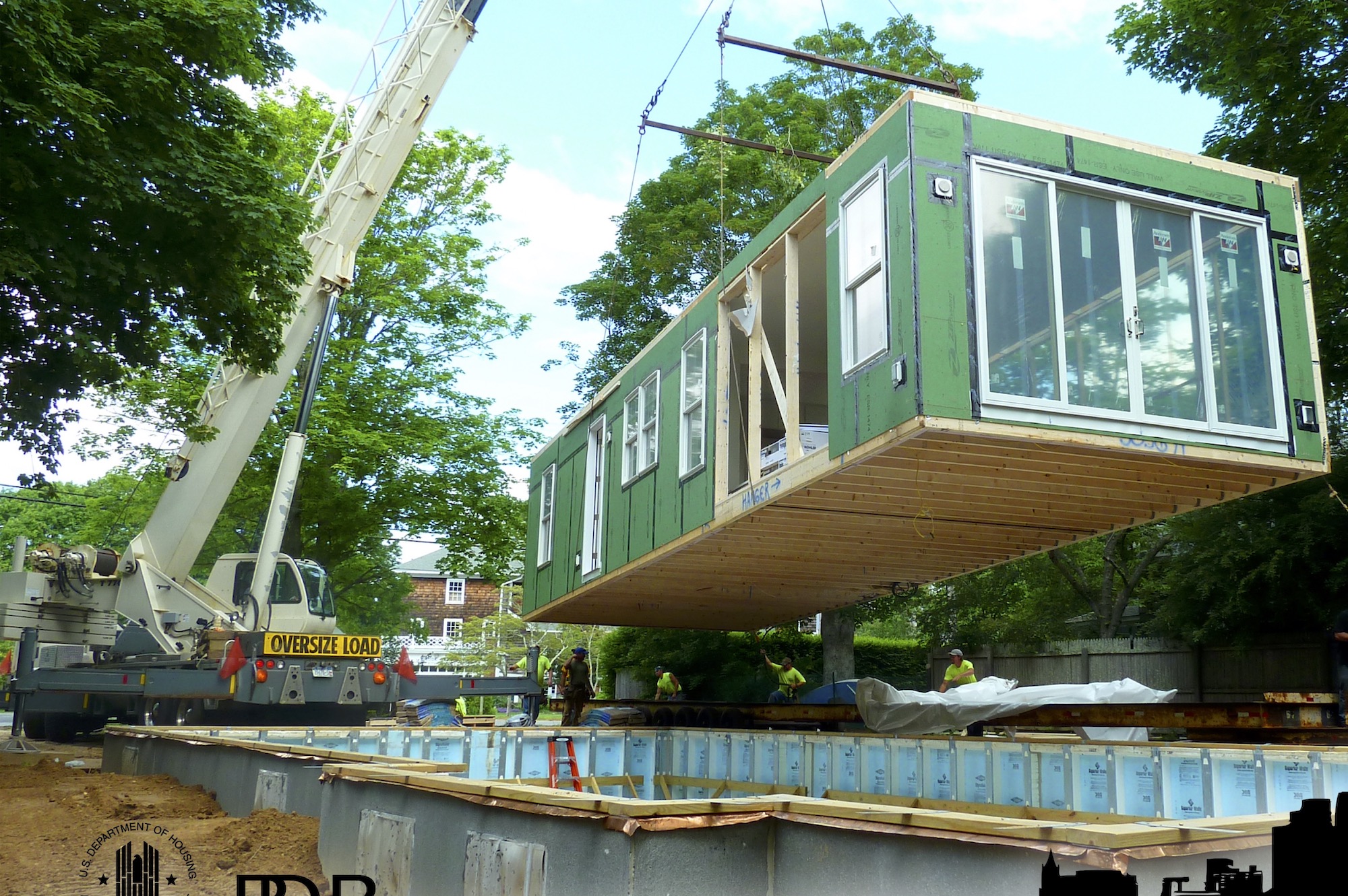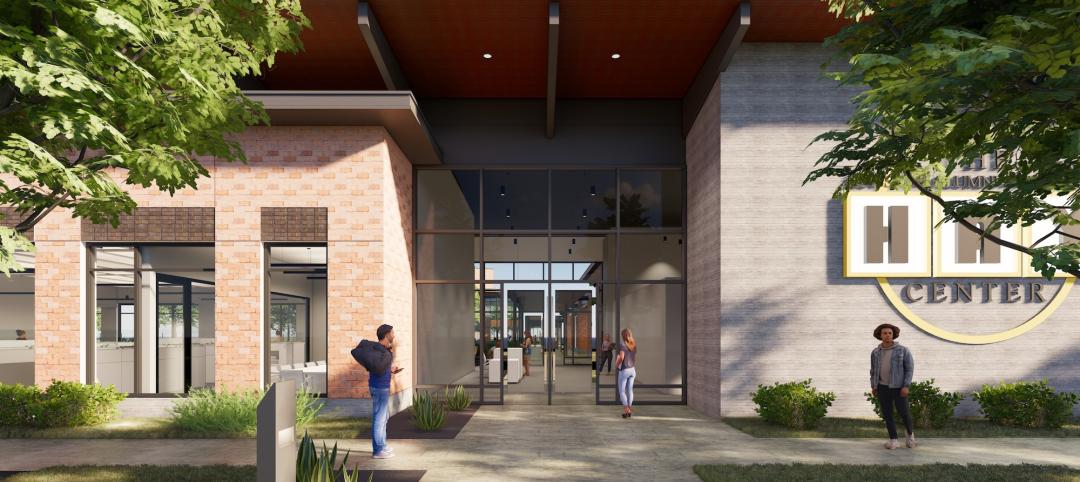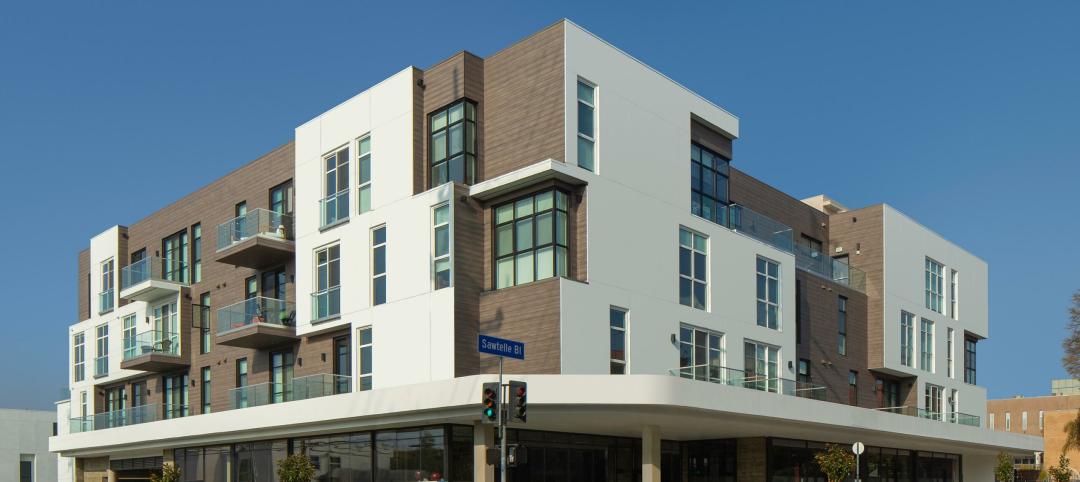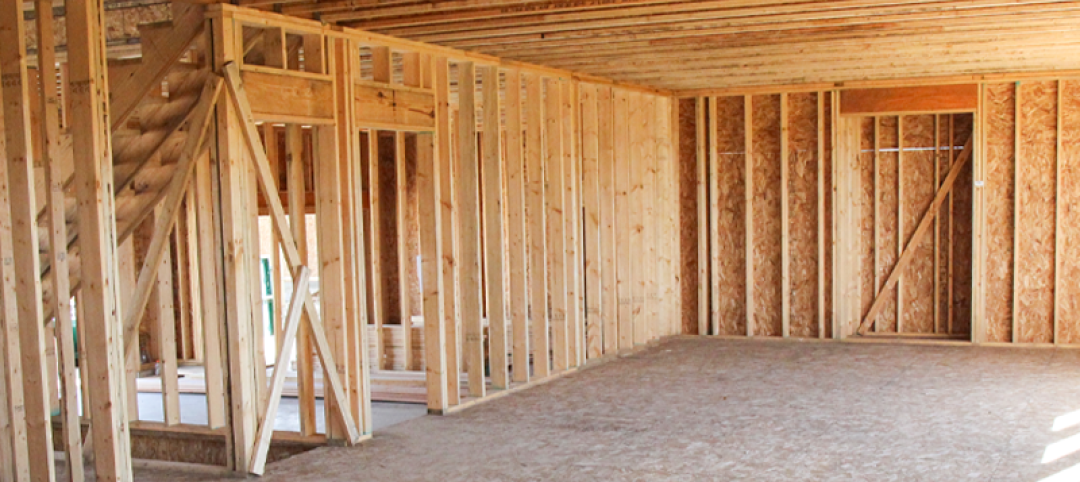The U.S. Department of Housing and Urban Development, in partnership with the National Institute of Building Sciences and MOD X, has released the Offsite Construction for Housing: Research Roadmap, a strategic report that presents the key knowledge gaps and research needs to overcome the barriers and challenges to offsite construction.
High prices for buyers and renters are forcing Americans out of their homes and making housing unattainable. This crisis is to a large extent driven by supply constraints.
Offsite construction has the potential to deliver more affordable and accessible single and multifamily housing at scale. However, offsite construction for housing in the U.S. faces several challenges to increase uptake and adoption. This stands in considerable contrast to more mature international offsite construction industries, such as those in the UK, Japan, and Sweden.
“We need an all-of-the-above approach to housing, and offsite construction represents a unique and underused opportunity to help meet the needs of America’s working families,” said AC Powell, JD, CPS, President and CEO of NIBS. “We applaud HUD for undertaking this research effort to overcome barriers and level the playing field for all construction methods to help alleviate the housing crisis.”
What’s in The Offsite Construction for Housing: Research Roadmap
The Research Roadmap was developed by a Project Technical Committee chaired by MOD X and composed of national and international stakeholders and cross-sector experts. It is intended as a roadmap for HUD to align its programs and partnerships, while simultaneously offering an industry-wide roadmap for governments, universities, and offsite companies to come together to advance offsite construction for housing.
The Research Roadmap covers six topical areas in need of coordinated research efforts, with sub-topics and specific research questions listed to help answer the knowledge gaps:
- Research Topic 1: Regulatory and Policy Framework.
- Research Topic 2: Standards and System Performance.
- Research Topic 3: Capital, Finance, and Insurance.
- Research Topic 4: Project Delivery and Contracts.
- Research Topic 5: Labor and Workforce Training and Management.
- Research Topic 6: Business Models and Economic Performance.
The NIBS Off-Site Construction Council
In 2013, the National Institute of Building Sciences established the Off-Site Construction Council (OSCC) to serve as a research, education, and outreach center for relevant and current information on off-site design and construction for commercial, institutional, and multifamily facilities. NIBS staff and members of the OSCC have supported federal and private off-site construction research projects, including toolkits, roadmaps, and reports for the off-site industry. NIBS and the OSCC encourage OSCC members and other off-site stakeholders to submit reports or projects of interest that can help in the furthering of the council's goals. For more information, visit the OSCC.
About NIBS
National Institute of Building Sciences brings together labor and consumer interests, government representatives, regulatory agencies, and members of the building industry to identify and resolve problems and potential issues in the built environment. NIBS is a nonprofit, non-governmental organization. It was established by Congress in 1974. For more information, visit nibs.org or follow @bldgsciences on Twitter and Facebook.
Related Stories
Affordable Housing | Jul 27, 2023
Houston to soon have 50 new residential units for youth leaving foster care
Houston will soon have 50 new residential units for youth leaving the foster care system and entering adulthood. The Houston Alumni and Youth (HAY) Center has broken ground on its 59,000-sf campus, with completion expected by July 2024. The HAY Center is a nonprofit program of Harris County Resources for Children and Adults and for foster youth ages 14-25 transitioning to adulthood in the Houston community.
Adaptive Reuse | Jul 27, 2023
Number of U.S. adaptive reuse projects jumps to 122,000 from 77,000
The number of adaptive reuse projects in the pipeline grew to a record 122,000 in 2023 from 77,000 registered last year, according to RentCafe’s annual Adaptive Reuse Report. Of the 122,000 apartments currently undergoing conversion, 45,000 are the result of office repurposing, representing 37% of the total, followed by hotels (23% of future projects).
Multifamily Housing | Jul 25, 2023
San Francisco seeks proposals for adaptive reuse of underutilized downtown office buildings
The City of San Francisco released a Request For Interest to identify office building conversions that city officials could help expedite with zoning changes, regulatory measures, and financial incentives.
Sponsored | Multifamily Housing | Jul 20, 2023
Fire-Rated Systems in Light-Frame Wood Construction
Find guidance on designing and building some of the most cost-effective, code-compliant fire-rated construction systems.
Multifamily Housing | Jul 13, 2023
Walkable neighborhoods encourage stronger sense of community
Adults who live in walkable neighborhoods are more likely to interact with their neighbors and have a stronger sense of community than people who live in car-dependent communities, according to a report by the Herbert Wertheim School of Public Health and Human Longevity Science at University of California San Diego.
Affordable Housing | Jul 12, 2023
Navigating homelessness with modular building solutions
San Francisco-based architect Chuck Bloszies, FAIA, SE, LEED AP, discusses his firm's designs for Navigation Centers, temporary housing for the homeless in northern California.
Sponsored | Fire and Life Safety | Jul 12, 2023
Fire safety considerations for cantilevered buildings [AIA course]
Bold cantilevered designs are prevalent today, as developers and architects strive to maximize space, views, and natural light in buildings. Cantilevered structures, however, present a host of challenges for building teams, according to José R. Rivera, PE, Associate Principal and Director of Plumbing and Fire Protection with Lilker.
Mass Timber | Jul 11, 2023
5 solutions to acoustic issues in mass timber buildings
For all its advantages, mass timber also has a less-heralded quality: its acoustic challenges. Exposed wood ceilings and floors have led to issues with excessive noise. Mass timber experts offer practical solutions to the top five acoustic issues in mass timber buildings.
Multifamily Housing | Jul 11, 2023
Converting downtown office into multifamily residential: Let’s stop and think about this
Is the office-to-residential conversion really what’s best for our downtowns from a cultural, urban, economic perspective? Or is this silver bullet really a poison pill?

















